‘There is a positive trend towards experimentation in Kazan’: Alexey Stepantsov — about theatrical sphere of the city
Director of the Youth Theatre on Bulak tells how the industry combines classics and novelty
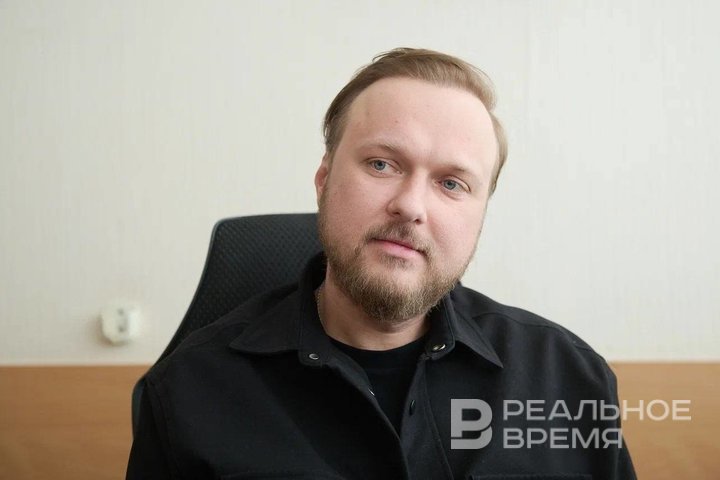
“Our main problem is that we are under lease. We do not have our own premises, and other difficulties arise from this," said Alexey Stepantsov, the director of the Youth Theatre on Bulak. This year, the institution celebrates its 15th anniversary — over this time it has managed to grow and learn how to cope with difficulties. Alexey Stepantsov, the director of the institution, spoke about the ups and downs of the independent theater and the cultural sphere of Tatarstan in an interview with Realnoe Vremya.
“15 years of the theatre's existence is already a great achievement”
This year the theatre celebrates its 15th anniversary. Could you tells us what happened during this time?
A lot of great events have happened in these 15 years. First of all, 15 years of existence of a commercial non—state theatre is already a great achievement. Few people can be proud of this, because it is very difficult. Without any support, neither government nor partner, it is difficult to live on self-sufficiency and develop.
What were the main problems you had to face?
Our main problem is that we are under lease. We do not have our own premises, and other difficulties arise from this. When the pandemic hit, the activity was stopped and the work was banned. At the same time, no one cancelled rent and salaries, and we had to somehow find a way out. Then they restricted attendance at mass events and introduced QR codes. This naturally affected the work and income of the theatre.
This is the biggest challenge we've been able to overcome. As a result, we didn't close as a theatre: our doors were closed, but we worked online and were in touch with the audience on social networks — we shot videos and so on. After the resumption of public work was allowed, our theatre began to actively show performances, and the audience actively went — we have full house.
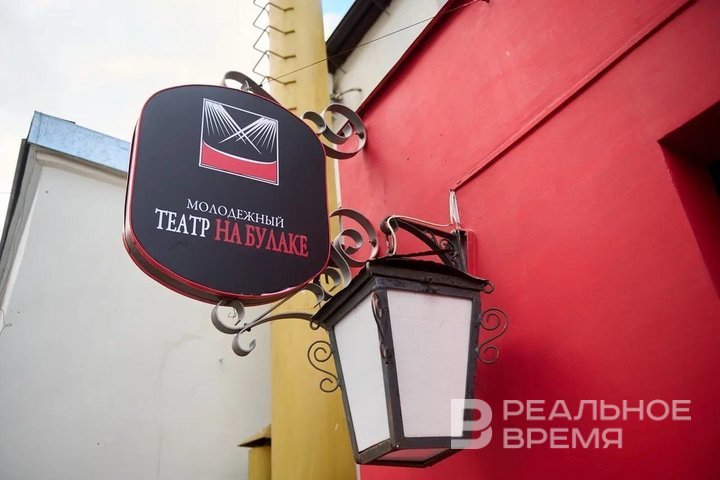
Another difficulty also arises from the absence of our own building: since the owners changed periodically, but we stayed, there was a risk that we would not agree on the rent, and then we would simply be asked to leave. Then we wrote a petition asking for help, for the provision of premises. Of course, we wanted to stay here, so we asked for all possible support measures. But in the end, we agreed with the owner, and to this day we live here, paying rent. Even if it is very high. Due to the high bank rates, it is not possible to buy out the building.
How has the theatre expanded over the past 15 years?
We have opened a chamber youth orchestra consisting of graduates of the Kazan Conservatory. They give regular concerts, which are also a success. The orchestra's director is Dmitry Chirkov.
In addition, we have opened a theatre studio for all ages. Children, parents, and grandparents study there from young to old. Then we put on performances with them, sell tickets for them. For a certain period of time, students become real artists. Someone wants to continue and gets a qualification, goes to an educational institution.
“Studio students” open up a lot during their studies and often come to the conclusion that theatre classes open up a huge horizon. They come to us at 30 and 70 years old. They open up a second wind to life.
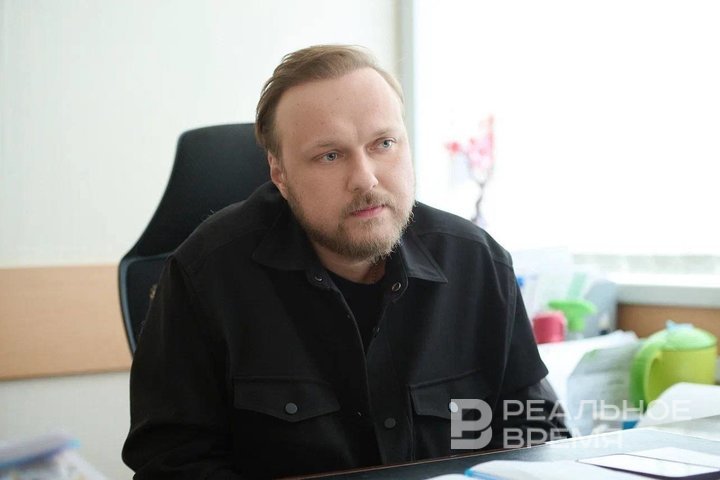
Most often, teenagers from 10 to 16 and adults from 18 to 35 come. Someone is very closed, withdrawn, unable to speak out, or wanted to sing all his life, but was shy. Here there is an opportunity to open up and express what has accumulated. The beauty of the studio is that you come to people just like yourself. These classes have a psychological effect — it's therapy. A person becomes liberated and behaves in a different way. A person becomes much more confident in life.
“Those who choose the theatre understand that it is a family”
The theatre was created as a platform for self-expression of young professionals. Is it possible to maintain this course?
Absolutely. Our story began with this. The first performance was performed by graduates of the Kazan Theater School, and many actors still play in our performances. Someone retrained as a director, someone works for several theatres. Every year we replenish the troupe with graduates of cultural educational institutions in Kazan.
90% of our team are graduates of Kazan institutions. If you take all the actors, then there will be up to 50 people.
Our head director releases a new course every year, and former students are gradually entering the profession. First, they take part in extras, then in the main performances for more roles. There are graduates who have been with us since the very beginning.
Irada Ayupova, Tatarstan's Minister of Culture, recently spoke about the shortage of technical specialists in theatres. Do you feel it? What is the general situation with human resources?
There are really not enough technicians, namely lighting designers, sound engineers, set designers. This is a big problem for Tatarstan. There are not enough professionals. And if a good professional grows up, then he is in great demand. Either they hire them very quickly, or he leaves Kazan. This acute shortage of personnel is indeed our problem. We discussed this with representatives of various theatres in Tatarstan, and everyone claims a shortage.
We have the opportunity to hold events both on our site and on tour. But if, for example, five events are held per day, it is difficult for us to go even to the nearest Zelenodolsk due to the lack of technicians. We are ready to train them, but we don't know where to find them.
It turns out that universities do not produce enough specialists?
The thing is that a large number of graduates do not go to the theatre. Many people find themselves in the box office — they believe that it is more profitable. But those who still choose the theatre understand that this is a family. They get used to this family and live in it.
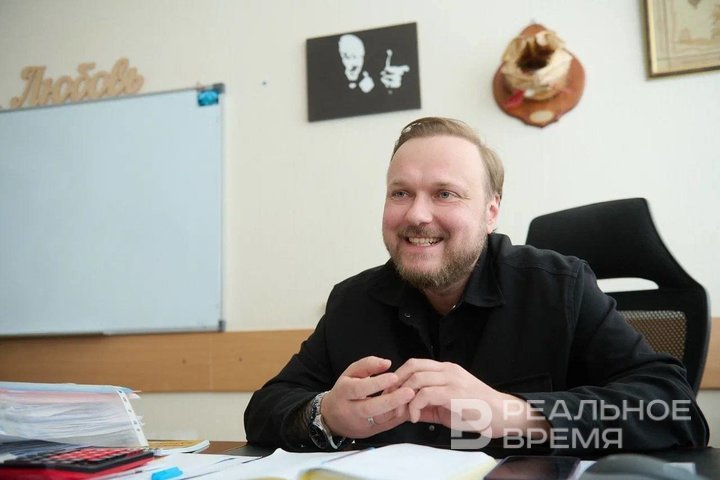
How are things in other theatrical specialties: are there enough staff?
As for the actors, there are problems with the male sex. There are enough women. The thing is that many men want to earn a lot at once, so they are looking for additional ways to earn money. Because of this, it is not possible to fully devote oneself to the theatrical craft. But to become a successful artist, you still need to spend time and effort, and perhaps live in lack of money for a while. Not everyone is ready for this.
“Love is born in the theatre”
If we talk about the theatrical sphere of Kazan as a whole, what are the trends?
In my opinion, there is a positive trend towards experimentation. Theaters are not afraid to experiment. Everyone manages to create something new and beautiful. No one stands still. Even if we consider the classics, they are also served with a fresh look. It turns out to catch even the youngest viewers. For example, we have Hamlet, which we have staged with a modern twist. A lot of kids come to watch it.
Were you afraid to experiment before?
It seems to me that all theaters used to lean more towards the classics. Now there are more and more new, young directors who want to experiment. They're tired of watching the same thing from different authors. In my opinion, there is a positive trend towards experimentation.
Intertwining with modern technology appears in the performances. To this day, someone completely denies this and wants to leave only people and objects on the stage, while someone adds effects: both sound and visual. A young modern person is very observant because of the large amount of content from different parts of the world. Therefore, he can bring something fresh to the project.
At the same time, it is up to the director how much classics to leave in the play. I am the head of the theatre, but I leave the concept of the play to the director.
It is very good that there are both experienced adult directors and young ones. This gives a balance of different visions. And these visions can compete, and competition is always a good thing. There is a rivalry going on now: who will surprise you more, who will present the same “Hamlet” better. It's great when the same performances are shown in different ways in different theaters in Kazan. Each director invests his own vision. The audience can walk through the theaters and make a choice for themselves: whose presentation they liked the most. In general, I advise you to go to the theaters. Love is born here!
What kind of audience is there in Kazan? Are they ready to experiment?
There is just a wonderful audience in Kazan — any artist will tell you about it. If a more or less famous person comes here, they will definitely gather the whole hall, because the audience here is very responsive, kind, observant and curious. They want to see everything, they are ready for new things.
Our people take cultural leisure very well. They love both classics and experiments. There's just a great audience in Kazan — any artist can tell you that.
Is this not the case in all cities?
Of course, there are cities where everything is wrong. I won't name them. But everyone knows that theatre cities include, for example, Moscow, St. Petersburg, Kazan, and Yoshkar-Ola. In these cities, it is customary for people to go to theatres — they have been trained to do this since childhood.
Are you looking towards national performances? Perhaps you are adding some details?
We have a lot of performances that touch on different faiths and nationalities — only in a positive way. But at the moment, there is no Tatar national play in the repertoire. We've been thinking about putting it up for years. But we can't decide on the concept yet.
“There are no cardinal problems, and everything else is life!”
How do you assess the results of the past year?
I can say that the season was successful, we worked without closures, even in the summer. We've had some interesting events. For example, we staged an eco-play together with SIBUR. The performance is designed for both children and adults. A lot of work has been done for it. People's Artist Evgeny Mironov came to the premiere.
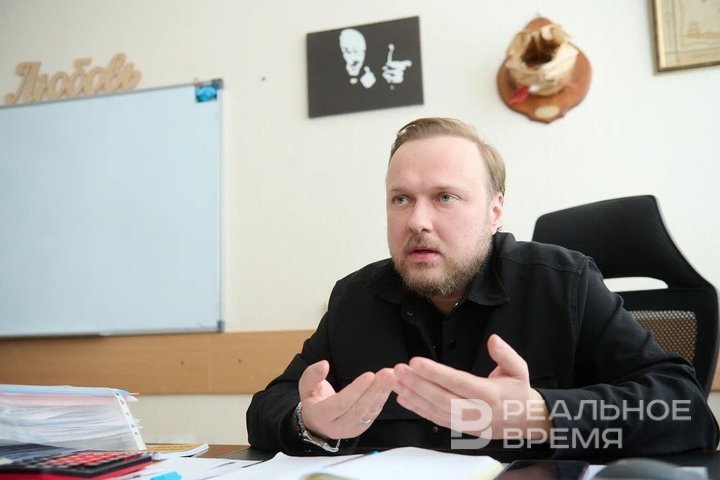
What are your plans for the coming year?
We turned 15 years old. We haven't celebrated this anniversary in a big way yet, but of course, we should. We will rent a large venue and hold a celebration on it for all our viewers. The Ministry of Culture of Tatarstan will also conduct an assessment, and we will present our artists with certain regalia.
We plan to hold a holiday in early September. The program is still under development.
How do you assess the current situation of the theater in general?
Everything is going well. We have our own problems related to financing. For example, we need to make repairs and improve conditions. We are trying to find funds, but as such we have no sponsors or partners. The audience helps us: somewhere, someone found an armchair or a piano and brought it to us. We are working to have a permanent partner, and we have become even better. We write letters, that's all that's left.
We are an already established brand, we have sales. We had a general partnership agreement with Yandex, and they provided financial support. Negotiations on its extension are currently underway. We have contacted various government agencies, but how can they help? There are government grants, and we participate in them. For example, we opened a branch in Saransk. Financing is the main problem, but even this we are coping with. There are no cardinal terrible difficulties. And everything else is life! That's why we're working!